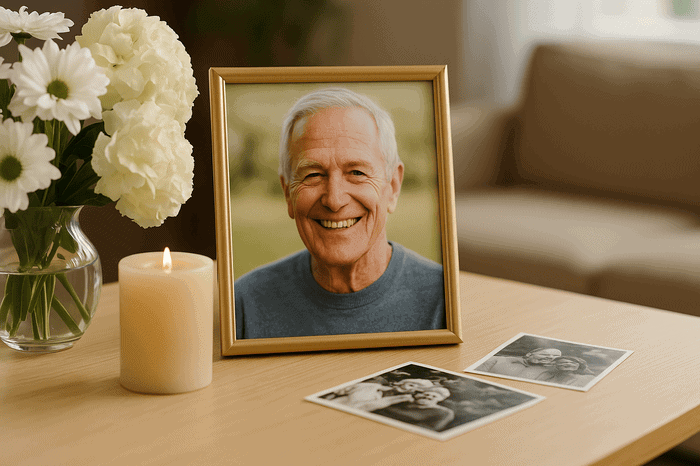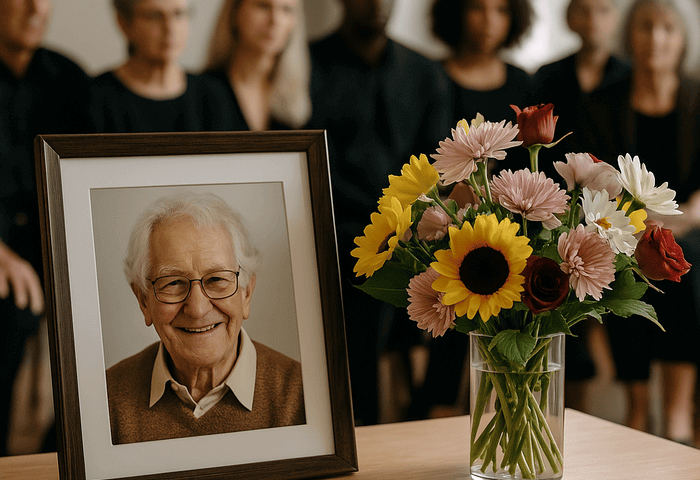Types of Funeral Services: Memorial Services

Types of Funeral Services: Direct Cremation
April 11, 2025Memorial services are an honorable way to honor a deceased loved one without following the tradition of a standard funeral. In contrast to traditional funerals, memorial services are most often held without the presence of the body, focusing more on honoring the life experienced and less on the bodily farewell. They offer the opportunity for loved ones to get together, recall, and celebrate the legacy of the deceased.
People choose memorial services due to the ability to arrange at one’s convenience. Since the body is not around, the family may plan the service days, weeks, or months following death. This affords plenty of room for creative and individual honor, which captures the individual personality and faith of the deceased.
What Are Memorial Services?
A memorial service is a gathering intended to honor and remember a deceased person, rather than the bodily presence. A memorial service varies from a standard funeral primarily because it is in the spirit of honoring the individual’s life compared to conducting set rituals.
At times the memorial service is held somewhere that was special to the deceased, for example, a favorite park, neighborhood center, or home. They can include speeches, music, photo slides, and personal stories, offering a good means for participants to connect with one another and take time to think about things.
Unlike the standard with conventional funerals, memorial services can be held much later. This flexibility of timing provides sufficient time to plan meticulously and have more significant tributes. The emphasis also tends to shift from mourning to celebrating life, providing a secure and supportive atmosphere.
Key Features of a Memorial Service
Flexible Timing
Memorial services can be scheduled at any point after a person’s passing. This flexibility makes it easier for friends and family who live far away to attend.
Personalized Tributes
Families often choose to include music, stories, and mementos that capture the personality and spirit of the loved one. This approach makes the service unique and memorable.
No Body Present
Since the body isn’t typically present, the service can take place in a variety of settings, including outdoor locations or non-traditional venues.
Focus on Celebration of Life
The atmosphere tends to be more positive and reflective, celebrating the achievements, relationships, and joys that defined the person’s life.
Why Choose a Memorial Service?
Memorial services are also appealing to families who wish to have something more flexible and creative in their remembrance of their loved one. Unlike traditional funerals, which usually are planned in a methodical and formal sense, memorial services leave space for creativity and personalization.
There’s no need to rush planning a memorial service. Because they can be planned many months after the deceased passed away, families can take the time to arrange for an event that accurately mirrors the individual’s values and life. It is this flexibility that has made them particularly popular when relatives must travel or convene from far-away places.
Memorial services also provide a unique opportunity for creativity. Whether by the use of loved music, photo collage, or narrative, families can create the opportunity for personalization and meaning.
These services are suitable for families that want a casual or non-sectarian experience. While there are funerals that use religious components, there are also funerals that can be entirely focused on celebrating the accomplishments and achievements of the individual.

Types of Memorial Services
Religious Memorials
Religious memorial services follow faith-based traditions, often including prayers, hymns, and readings. They may take place in places of worship or community centers, led by clergy or spiritual leaders.
Secular Celebrations of Life
These memorials are rooted in the individual achievements and life stories of the deceased, without religious context. They can be in a park, garden, or even in the person’s home, emphasizing the good that the person contributed.
Virtual Memorials
When relatives and loved ones are distant from one another, virtual memorials become a way to connect through video conferencing. These virtual meetings can go from reminiscing about memories, displaying photos, to even hearing pre-recorded voice messages from the absentees.
Themed Memorials
Other families choose to have a memorial with a theme reflecting the interests or hobbies of the deceased person. Whether a sports-themed ceremony or a memorial reflecting their favorite music, these create a personal touch to the service.
Planning a Memorial Service
Choosing a Location
The location determines the tone of the memorial service. Consider places that meant a lot to the deceased, for example, a favorite park, home, or church. Internet services also bring people together, especially when travel is not feasible.
Selecting Speakers and Participants
Invite family members and close friends to share stories, read poems, or play music. Including a diverse range of voices helps create a richer, more personal tribute.
Personal Touches
Adding photo displays, video montages, or favorite songs makes the service more meaningful. Consider creating a memory table with mementos that reflect the person’s interests and life achievements.
Suggested Program Layout
Start with a welcome message, followed by personal stories, musical interludes, and readings. End with a closing reflection or group activity, like lighting candles or sharing a final thought.
Costs of Memorial Services
Memorial services tend to be cheaper than traditional funerals since they don’t include embalming, caskets, and graveside ceremonies. The cost ranges from a few hundred to a few thousand dollars, depending on the location, catering, and memorial items like printed programs.
To be frugal, have the party at home or a public venue and prepare food yourself or together. Virtual invitations and online services are cost-saving as well. Having minimal flower arrangements or making the decorations personalized can be a lovely gesture without a great expense.


